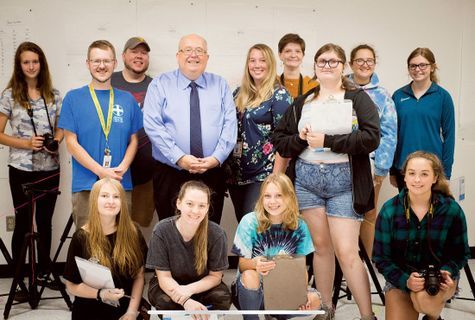
The Teen CSI Academy offered students an immersive look into criminal justice.
A Deep Dive into Criminal Justice
Andrew Walker, an associate professor of criminal justice at WVU-P and a key instructor for the academy, highlighted the comprehensive nature of the curriculum. “We cover everything from the initial 911 call to testifying in court, and all of the science and realities of crime scene investigation,” Walker explained. This broad scope ensures that participants gain a holistic view of the justice system, from the moment a crime is reported to its resolution in a courtroom.
Hands-On Learning and Student Experiences
The academy emphasized experiential learning, allowing students to actively engage with various aspects of forensic science. Many participants shared their enthusiasm for the practical activities. McKenna Broce, a student from St. Marys, particularly enjoyed working with cameras and the intricacies of fingerprinting, noting that “there’s a lot of different aspects to it, and it’s never the same.”
Jasmine Haddox from Parkersburg South recounted testing different blood spatters and meticulously analyzing a mock crime scene. She appreciated the opportunity to “go through and and try to figure out what happened and took notes of everything.” Similarly, Kenedi Williams from River High School found the SIM lab particularly engaging, where she learned to distinguish between various blood spatter patterns and even tested items to determine if they had real or fake blood. These activities provided tangible insights into the meticulous work of crime scene investigators.
Real-World Perspectives
One of the academy’s culminating activities involved a Q&A session with Sergeant Jacob Edwards of the Wood County Sheriff’s Office. This direct interaction allowed the teens to ask pressing questions about the day-to-day duties of a police officer. Sergeant Edwards noted that students were particularly curious about “high-risk stuff and the different teams we have,” as well as “the calls that we go to every year, what’s some of the dangerous calls, and everything in between.” This candid discussion provided invaluable real-world context to their academic learning.
Charting Future Paths
Beyond the practical skills, Walker stressed the program’s role in career guidance. The Teen CSI Academy serves as an excellent platform for students interested in criminal justice to explore potential pathways.
“We break down the myths and focus on the realities,” Walker stated, adding that “the other piece is helping them understand the opportunities they might have at college.”
By providing a realistic glimpse into the field and highlighting educational prospects, the academy equips young individuals with a clearer understanding of a career in criminal justice.
The academy’s success underscores the importance of hands-on, immersive programs in guiding students toward their future academic and professional pursuits.



Be the first to comment